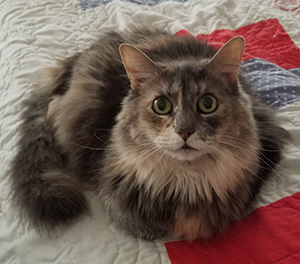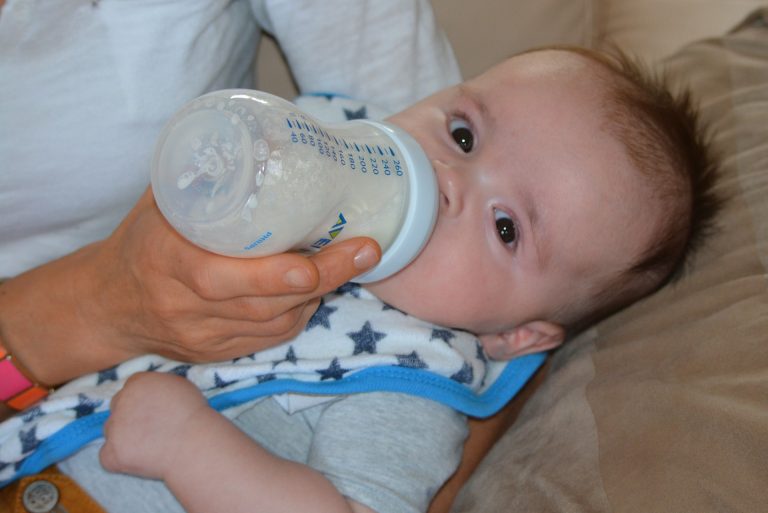Church and Healthcare: Fear
Let me remind everyone that I’m really thinking on my blog, rather than providing answers that I have really thought out in discussing health care issues and the church. I have lots of pieces, but I don’t feel that I have anything like an assembled puzzle. My comments will also necessarily derive from personal experience. And as always, I tend to ramble a bit!
One direction from which we can come at this issue is from the question of need. What is it that a person needs from their church community when facing either illness or death? Since Mark brought up especially end of life issues, I’m focusing on this, including life-threatening illnesses.
Several times when we’ve gone into the children’s wing of the hospital where our son received chemotherapy, my wife has commented that the real enemy is not cancer, but fear. I confess that the first time she said that, my reaction was a bit bewildered. Yes, I know that we have to fight fear, but we’re putting all of these chemicals into a child’s body for the purpose of killing the cancer, hopefully before they kill him. That’s surely fighting the cancer!
But she has a point. The real difficult thing about illness and eventually facing death is the number of decisions that have to be made. Now my wife and I obviously were not facing our own deaths, but rather the death of a child. At first I was less involved. I was the step-father, but then James had to face the death of a loved one during his own struggle–his father died of a heart attack. After this I got a new perspective, because I was the one to go with him to doctor’s consultations. I remember his response vividly. He had only known about his father’s death for perhaps 15 minutes when he walked up to me and said, “Well, I guess it’s all up to you now.” Thought it wasn’t “all up to me,” he had a point.
The thought of death does something to us, even as Christians, that I think makes us irrational. I say (and confess) “us” even though I believe our family managed to step back. The first thing is to realize that death isn’t your worst enemy. I say that not merely as a Christian who believes that there is more for us after this life. Leaving that aside, the process of medical care can be much more terrifying than the thought of dying.
To be honest, I don’t know how most people do it. I grew up in a medically oriented family. We discussed health issues around the dinner table. We talked about dying as a pretty ordinary topic. We talked about the choices in medicine constantly. My wife is an R. N. and has 12 years experience as a hospice educator. With all that background available, we would get into a doctor’s office for a consultation and become hopelessly confused.
I remember one consultation after the first recurrence of the cancer. The oncologist was outlining treatment options. I could look at James and see him tuning out. I told the doctor that I had the role of being the idiot and started asking him detailed questions, making him explain the treatment options, their impact both in terms of effectiveness and side effects. By being the complete idiot and making him go into ABC mode, I got the information. I’m wondering how many people would push that hard, or know when to push. He was a good doctor, with an excellent reputation, and we liked him. We ended up taking “none of the above” and going with a plan cooked up by a surgeon at another hospital.
Now our church family was a bit of a mixed bag throughout all of this. Because I’m going to point out some real failures of support, I want to note that I believe everyone sincerely wanted to be “the body of Christ” for us. Most of them also did reasonably well. But there were people who were not at all helpful. In most cases, I think this was because of fear, either their own, or their assumption that we would be running scared. (Please don’t imagine us as some kind of fearless heroes. We just tried to remain rational under pressure!)
Let me just list some things:
- You don’t have to be down all the time just because you or a family member is ill. A number of people took me aside because they felt they needed to let me know that Jody (my wife) was in denial, and didn’t understand the seriousness of the situation. She was much too cheerful. All things considered, I suspect the hospice educator was adequately informed. I was happy that there were times when she could be cheerful.
- Repeat that point for James. I don’t know how many times I was told he didn’t understand his condition and the fact that he could die. When he first went into treatment he wasn’t all that clear, but by the time it was all over he could educate most adults on cancer, death, and dying. Again, any time he could be cheerful was good. Before his father died, he and I had an agreement that we would just have fun, so I never brought up the illness when we were together unless absolutely necessary. Of course later that had to change. Church members (or any friends and relatives) need to be aware that you don’t need someone to be miserable with you. Often it’s nice just to have someone be normal and do normal things.
- It is impossible to follow every diet, special remedy, or treatment plan found on the internet. We were frequently presented with complete solutions discovered via the internet, ranging from eating lots of brussels sprouts to buying a several thousand dollar water filtration system. It was OK for people to suggest, but when they followed up to see if we were following their suggestions it was a bit much.
- Similarly, you can’t go to every faith healer, preacher, prayer team, special revival, or healing service that is offered. We had people who were desperate because they thought if we didn’t go to a particular place, James would not be healed, but if we did, healing was certain.
- People don’t necessarily hear what you teach and preach. Since both Jody and I teach and offer seminars, including on the topic of prayer, it was often expected that we should be able to pray for our son’s healing and that would be it. Apparently very few people had ever listened and realized that we had very explicitly said that there was no such guarantee or expectation. (Cue the folks who say that it was because we didn’t believe enough or in the correct faction that there was no healing.)
One Sunday near the time that James went home we all skipped church and met in the living room. Some of our family members had been hurt by things they had heard. I pointed out that the people who did the hurting were not intending to, but that they were very likely operating from fear. If you can find a reason why someone else is suffering, then you can feel that you won’t be targeted. On the other hand if they could be convinced that the right prayer would result in certain healing, they could feel confident that if that nasty diagnosis came in, they could handle it.
The idea of losing a child to cancer is so horrifying that we’d like to find a reason, and specifically a reason that doesn’t apply to you. Good luck! I wish anyone who does this the best in making yourself feel confident. But bad things do happen to generally good people, and whatever comes up as your lot, whether you look at is as God’s plan, or just the way things work in this world, you’re going to have to deal with it.
So what does a church do as a community about this fear? I found that there is one key, and that is staying together and sharing. James had friends who drew closer, and he had friends who couldn’t handle being with him in the fire of affliction. We have been so amazed and thankful for those friends who stuck with him. The majority of those were a few years older than he was, and that difference got more marked as time went on. He simply no longer talked about the things that the boys his own age were interested in. But there were a number of close friends his own age who walked the walk with him. There are others I know who have regretted it.
Simply staying friends, remaining part of the community, and allowing the portions of life that can go on normally to do so is extremely important. There’s such a thing as dying while you’re still alive. James made an early decision not to do that. His final summer he started out in marching band for his high school. He made a difficult decision to step out because he realized he wasn’t going to be strong enough to march that season and indeed would probably not live through it, but he continued to join them on the field, and help with those things he was physically capable of doing.
He made a conscious decision that death wasn’t going to stop him. The rest of us had to go along with that! And it was the right decision. The fear can destroy you long before the disease does, and make your remaining days a living death.
There is a value here in education, but that needs to be supplemented by active support. “Support” as I’ve said, isn’t a matter of having the right thing to say all the time. It’s a matter of simply continuing to be connected even when you don’t know what to say. I already knew all the words. The problem wasn’t to know what I ought to think. The problem was to get the encouragement and strength that comes from community. The ones who showed up and felt foolish, or so they tell me, didn’t hurt us in any way. Generally we had no idea they were as clueless as they claimed. We were just glad they were there. The folks who melted away–those hurt.
Most churches need to really reorient their thinking to truly be a community. The response to every problem is to have a program, and designate people. And of course we do need designated leaders and programs can help. But it’s not the designated people who showed up that helped. It was the close friends who remained and got closer.


Henry:
A wonderful post! Thanks for sharing it with us.
Great post! Thank you for all the wonderful insights and suggestions. Your son sounds like an amazing young man.